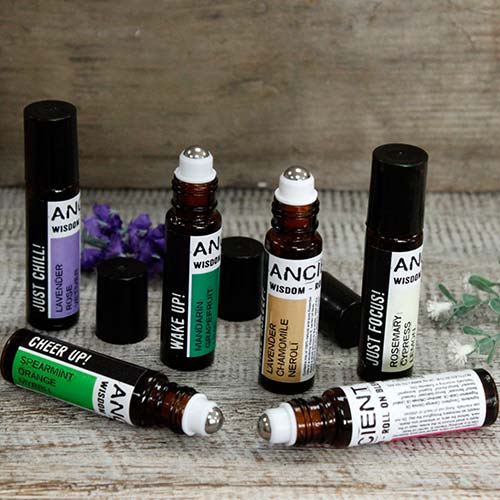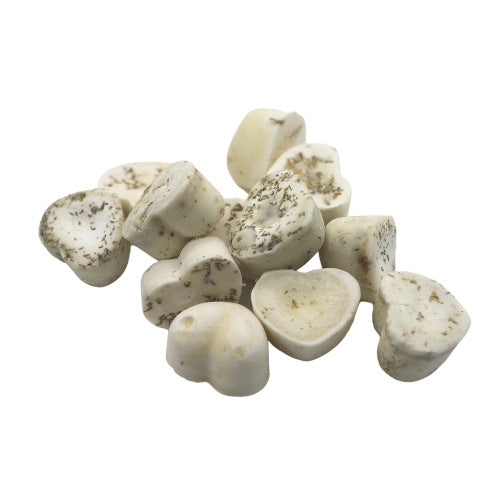Adopting a healthy lifestyle can significantly manage stress, promote mental health, and avoid burnout. By incorporating a good diet, seeking medical support, and exploring therapy options, we can take proactive steps to maintain our overall well-being.
Understanding Burnout
Burnout typically comes from prolonged exposure to extreme levels of stress and triggers feelings of physical and emotional exhaustion. It occurs when individuals feel overwhelmed and unable to meet their demands. Burnout can affect our lives, including work, relationships, and personal well-being. You should recognise the signs of burnout, and taking steps to prevent it is essential.
The Importance of a Healthy Lifestyle
A healthy lifestyle encompasses various aspects, including physical health, mental health, and self-care practices. By adopting healthy habits and making conscious choices, we can reduce stress levels, increase resilience, and improve our overall quality of life.
Maintaining a Good Diet
A balanced diet will give your body nutrients that help it function and support overall well-being. The diet should contain plant-based foods, fruits, vegetables, whole grains, protein, and healthy fats. By fueling our bodies with nutritious foods, we can enhance our energy levels, boost our immune system, and improve our mood.
The Role of Nutrition in Preventing Burnout
Nutrition has a role in preventing burnout; certain nutrients are particularly beneficial for managing stress and promoting mental health. Including foods rich in these nutrients, such as leafy greens, citrus fruits, nuts, and fatty fish, can help support our bodies during stressful periods and reduce the risk of burnout.
Tips for a Healthy Diet
- Prioritise whole, unprocessed foods
- Incorporate a variety of fruits and vegetables
- Choose protein sources, such as poultry, fish, and legumes. Include whole grains, such as brown rice and quinoa.
- Limit added sugars and processed foods
- Stay hydrated by drinking plenty of water
Seeking Medical Support
In addition to maintaining a healthy diet, seeking medical support is essential for preventing burnout. Medical help may include regular check-ups, screenings, and personalised treatment plans.
The Role of Medical Professionals
Medical professionals can provide medical explanations, diagnose and treat any underlying conditions, and offer guidance on stress management techniques. Seeking medical support allows individuals to receive personalised care and access resources that can contribute to their overall well-being.
Regular Check-ups and Screenings
Regular check-ups and screenings are vital for maintaining good physical and mental health. These appointments allow healthcare professionals to assess our overall well-being, identify potential health issues, and offer appropriate interventions. We must prioritise these appointments and follow through with recommended screenings to stay proactive in our healthcare.
Exploring Therapy Options
Therapy is a valuable tool for preventing burnout and promoting mental health. It provides a safe and confidential space to explore and address any underlying issues contributing to stress and burnout. Various therapy options are available, including individual therapy, group therapy, and online therapy. Finding a therapy approach that resonates with your needs and preferences is important.
Individual Therapy
One-to-one sessions with a qualified therapist allow individuals to explore their feelings and behaviours in a supportive and non-judgmental environment. Individual therapy can help develop coping strategies, improve self-awareness, and provide tools for managing stress effectively. It is a valuable resource for preventing and managing burnout.
Group Therapy
Group therapy involves sessions with a small group of individuals facing similar challenges. It provides an opportunity to connect with others, share experiences, and gain support from a group. It is particularly beneficial for individuals experiencing burnout, as it offers a supportive environment and a sense of belonging.
Online Therapy
Online therapies allow individuals to connect with licensed therapists through secure video calls, phone calls, or messaging platforms. Online therapy provides flexibility and eliminates geographical barriers, making it an excellent choice for those with busy schedules or limited access to in-person treatment.
Self-Care Practices
Self-care practices are essential for maintaining a healthy lifestyle and preventing burnout. They involve intentionally setting aside time to engage in activities that promote relaxation, rejuvenation, and well-being. Self-care practices vary widely and should be tailored to individual preferences and needs. Here are some self-care ideas to consider:
Mindfulness and Meditation
Mindfulness and meditation can help reduce stress, increase self-awareness, and promote well-being. A few minutes daily to practice mindful activities like deep breathing or guided meditation can reduce stress levels and improve mental health.
Physical Exercise
Daily physical exercise is beneficial not only for your physical health but also for your mental well-being. Exercise releases endorphins, natural mood boosters, and can help reduce stress and anxiety. It would be best to discover an exercise routine that suits your lifestyle and will help prevent burnout.
Quality Sleep
Getting enough sleep is one of the most critical factors for reducing burnout. Prioritising quality sleep by establishing a consistent sleep pattern and creating a relaxing bedtime routine and sleep environment can positively impact our mental health and energy levels.
Hobbies and Creative Outlets
Engaging in hobbies and creative outlets can provide a break from daily stressors and contribute to increased well-being. Whether painting, playing a musical instrument, gardening, or writing, finding activities that bring joy and allow for self-expression can help prevent burnout and promote a healthy lifestyle.
Managing Stress
Stress management is crucial for preventing burnout and maintaining a healthy lifestyle. Effective stress management techniques can help individuals cope with daily stressors, reduce the risk of burnout, and promote overall well-being. Here are some strategies for managing stress:
Time Management
Prioritising and managing your daily time can reduce overwhelming feelings and help you create a sense of control. Breaking tasks into smaller, manageable steps, prioritising your most important tasks first, setting realistic deadlines, and delegating responsibilities can help individuals better manage their time and prevent burnout.
Setting Boundaries
Becoming strict with boundaries will help you maintain a healthy work-life balance and prevent burnout. It involves clearly defining limits and communicating them to others. Setting boundaries can include establishing designated work hours, taking breaks when needed, and learning to say no to excessive demands.
Relaxation Techniques
Engaging in relaxation techniques can help people reduce their stress levels, especially techniques such as deep breathing exercises.
Social Support
Sometimes, stepping away from stress-inducing activities and seeking social support from friends or family can provide valuable emotional support and a connection source. Sharing experiences, discussing challenges, and receiving support from others who understand can help individuals manage stress more effectively and prevent burnout.
Practicing Gratitude
Practising gratefulness involves focusing on the positives of life and expressing your appreciation. It can help shift our mindset, increase resilience, and improve overall well-being. Incorporating gratitude practices, such as keeping a journal or sharing gratitude with others, can prevent burnout. I like to practice gratitude at the dinner table by sharing three things I am grateful for before eating.
Cultivating Positive Relationships
Positive relationships are vital for our mental health. Social connections provide support, reduce feelings of loneliness, and promote overall well-being.
Engaging in spiritual Activities
Activities that bring us a sense of purpose and meaning can contribute to our overall mental well-being. Whether volunteering, pursuing hobbies, or engaging in work that aligns with our values, finding activities that resonate with our sense of purpose can enhance our mental health and prevent burnout.
Preventing Mental Illness
Preventing mental illness is an essential aspect of maintaining a healthy lifestyle and avoiding burnout. While not all mental illnesses can be prevented, specific strategies can help reduce the risk and promote mental well-being. Here are some tips for preventing mental illness:
Seeking Support
If you have symptoms of poor mental illness or are concerned, you should seek support from healthcare professionals. Early intervention and appropriate treatment can improve outcomes and reduce the risk of long-term issues.
Building Resilience
Building resilience is crucial for navigating life's challenges and maintaining mental well-being. Resilience involves developing coping skills, fostering positive relationships, and cultivating a positive mindset. Engaging in activities that promote resilience, such as practising mindfulness and seeking support, can help prevent mental illness and promote overall well-being.
Therapy Options
There are various therapy options available, including cognitive-behavioural therapy (CBT), dialectical behaviour therapy (DBT), and mindfulness-based therapy. Working with a therapist can provide guidance, support, and tools for managing stress effectively.
Alternative Therapies
Acupuncture, yoga, massage and meditation can complement traditional treatment approaches and promote overall well-being. These therapies can help reduce stress, increase relaxation, and improve mental health. It is important to consult with healthcare professionals to determine the most suitable alternative treatments for your needs.
Building Resilience
Building resilience is crucial for preventing burnout and maintaining a healthy lifestyle. Resilience involves developing coping strategies, fostering positive relationships, and cultivating a positive mindset.
Developing Coping Skills
Developing practical coping skills can help individuals navigate challenges and bounce back from setbacks. Coping skills can include problem-solving techniques, relaxation exercises, and positive self-talk. Identifying and practising coping strategies that work for you can contribute to building resilience and preventing burnout.
Fostering Positive Relationships
Building and maintaining positive relationships provides a valuable source of support and connection. Being around supportive and caring individuals can help reduce stress levels and promote overall well-being. Investing time and energy into nurturing healthy relationships is critical to building resilience.
Cultivating a Positive Mindset
Cultivating a positive mindset involves focusing on the present moment, reframing negative thoughts, and practising self-compassion. Embracing a positive outlook and adopting a growth mindset can build resilience and prevent burnout.
A healthy lifestyle prevents burnout and promotes overall well-being. By maintaining a good diet, seeking medical support, exploring therapy options, practising self-care, managing stress, promoting mental health, preventing mental illness, and building resilience, we can take proactive steps to prevent burnout and lead fulfilling lives. Remember to prioritise your well-being, seek support when needed, and make choices that promote a healthy and balanced lifestyle.



















